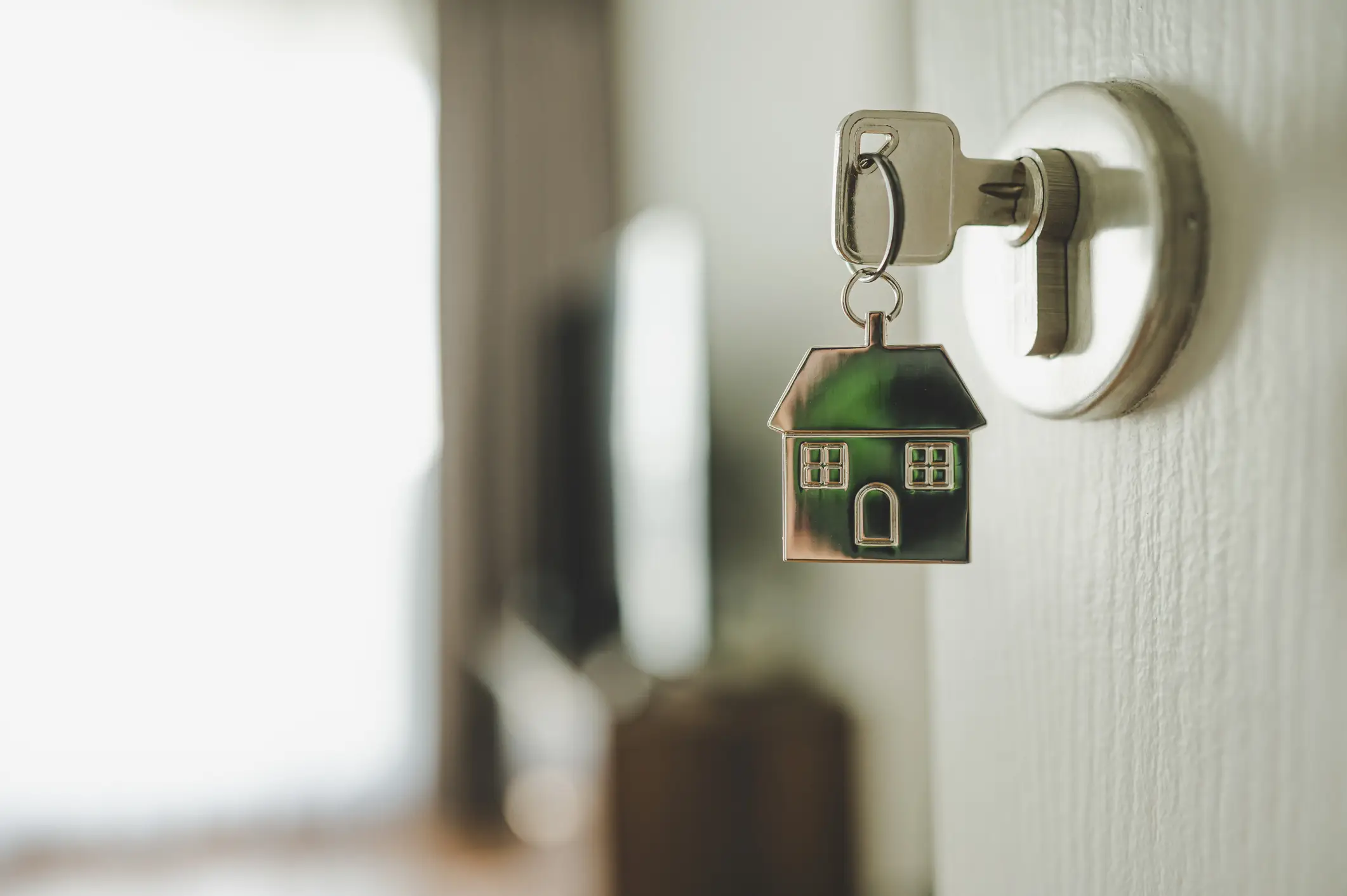How to Create a Debt Elimination Plan
Published on August 12, 2024 | 8 Minute read

Melanie
Ortiz Reyes
Content Specialist
If you're burdened with debt, qualifying for a mortgage can be challenging. High levels of debt can lower your credit score, increase your debt-to-income ratio, and make lenders hesitant to approve your loan application. To improve your chances of securing a mortgage and buying your dream home, it's important to eliminate or reduce your debt. Here's how to create a straightforward debt elimination plan that will set you on the path to homeownership.

1. Assess Your Financial Situation
Before you can create a debt elimination plan, you need to have a clear understanding of your financial situation. Start by taking stock of all your debts, including credit cards, student loans, car loans, and any other outstanding obligations. Make a list that includes:
- Total Amount Owed: The total balance for each debt.
- Interest Rates: The annual percentage rate (APR) for each debt.
- Minimum Monthly Payments: The amount you must pay each month to avoid penalties.
- Payment Due Dates: When each payment is due.
Next, calculate your monthly income and expenses to determine how much money you have available to put towards debt repayment. Be sure to include all sources of income, such as your salary, side gigs, and any passive income streams. Subtract your essential expenses (rent, utilities, groceries) from your income to see how much is left for debt repayment.
2. Set Clear Financial Goals
Having clear goals is crucial for staying motivated and on track with your debt elimination plan. Start by defining your long-term goal, which in this case is buying a house. Next, break this down into smaller, manageable goals, such as:
- Paying off high-interest credit card debt within 12 months.
- Reducing your debt-to-income ratio to below 36%.
- Saving for a down payment while paying down debt.
Setting specific, measurable, achievable, relevant, and time-bound goals will help you stay focused and monitor your progress.

3. Create a Budget and Stick to It
A budget is a powerful tool that can help you control your spending and allocate more money towards debt repayment. To create an effective budget:
- Track Your Spending: Use a budgeting app or spreadsheet to track every dollar you spend for at least one month. This will give you a clear picture of where your money is going.
- Identify Areas for Cutbacks: Look for areas where you can reduce spending, such as dining out, entertainment, and non-essential shopping. Redirect these funds towards your debt.
- Allocate Funds to Debt Repayment: Decide how much money you can realistically allocate to debt repayment each month. Make this a priority in your budget.
Consistency is key when it comes to budgeting. Review your budget regularly and make adjustments as needed to stay on track.
4. Choose a Debt Repayment Strategy
There are several debt repayment strategies you can use to eliminate your debt. The two most popular methods are the Debt Snowball and the Debt Avalanche.
- Debt Snowball Method: With this approach, you focus on paying off your smallest debt first while making minimum payments on your other debts. Once the smallest debt is paid off, you move on to the next smallest, and so on. This method can provide quick wins and build momentum, which can be motivating.
- Debt Avalanche Method: This method involves paying off your debt with the highest interest rate first while making minimum payments on the others. Once the highest-interest debt is paid off, you move on to the next highest, and so on. The Debt Avalanche method can save you more money in interest over time.
Choose the method that best suits your financial situation and personal preferences. The key is to stay committed to the strategy you choose.

5. Increase Your Income
If your current income isn't enough to make significant progress on your debt repayment, consider finding ways to increase your income. Some options include:
- Taking on a Part-Time Job: Consider taking on a part-time job or side hustle to earn extra money. This could be anything from freelance work to driving for a rideshare service.
- Selling Unwanted Items: Sell items you no longer need, such as electronics, furniture, or clothing, to generate extra cash.
- Asking for a Raise: If you've been with your current employer for a while and have a strong track record, consider asking for a raise. Use the additional income to pay down debt.
Every extra dollar you earn can bring you one step closer to eliminating your debt and buying a house.
6. Negotiate with Creditors
If you're struggling to keep up with your debt payments, consider negotiating with your creditors. Many creditors are willing to work with you to create a more manageable payment plan. Some options include:
- Lowering Your Interest Rate: Ask your credit card company or lender if they can lower your interest rate, which can reduce your monthly payments and the total amount of interest you pay over time.
- Debt Settlement: In some cases, creditors may be willing to settle your debt for less than the full amount you owe. This can be a viable option if you're facing financial hardship, but it can also have a negative impact on your credit score.
- Hardship Programs: Some creditors offer hardship programs that temporarily reduce your payments or interest rates if you're experiencing financial difficulties.
It's important to communicate with your creditors as soon as you realize you're having trouble making payments. Ignoring the problem can lead to late fees, higher interest rates, and damage to your credit score.

7. Build an Emergency Fund
While paying off debt is a priority, it's also important to have an emergency fund in place to cover unexpected expenses. Without an emergency fund, you may find yourself relying on credit cards or loans to cover emergencies, which can add to your debt. Aim to save at least three to six months' worth of living expenses in a separate, easily accessible account.
To build your emergency fund while paying off debt:
- Start Small: Even saving a small amount each month can add up over time. Set up automatic transfers to your emergency fund to make saving easier.
- Use Windfalls Wisely: If you receive a tax refund, bonus, or other unexpected windfall, consider putting it into your emergency fund rather than spending it.
Having an emergency fund will give you peace of mind and help you stay on track with your debt elimination plan.
8. Monitor Your Credit Score
Your credit score plays a crucial role in your ability to qualify for a mortgage. As you work to eliminate your debt, it's important to monitor your credit score regularly to ensure it's improving. You can check your credit score for free through various online services or through your bank.
To improve your credit score:
- ·Make All Payments on Time: Payment history is the most significant factor in your credit score, so it's important to make all debt payments on time.
- Reduce Your Credit Utilization: Aim to keep your credit card balances below 30% of your credit limits. If you can keep it below 20%, even better. Paying down high balances can improve your credit score.
- Avoid Opening New Credit Accounts: Opening new credit accounts can temporarily lower your credit score. Focus on paying off existing debt instead.
As your credit score improves, you'll be in a better position to qualify for a mortgage with favorable terms.

9. Stay Committed to Your Plan
Eliminating debt and saving for a house is a long-term commitment that requires discipline and patience. To stay motivated:
- Celebrate Small Wins: Acknowledge and celebrate your progress along the way, whether it's paying off a credit card or reaching a savings milestone.
- Visualize Your Goal: Keep a visual reminder of your goal, such as a picture of your dream home, to stay focused and motivated.
- Seek Support: Share your goals with a trusted friend or family member who can offer encouragement and accountability.
By staying committed to your debt elimination plan, you'll be well on your way to achieving your goal of homeownership.
Creating a straightforward debt elimination plan is crucial for anyone looking to buy a house. By assessing your financial situation, setting clear goals, budgeting, and choosing a repayment strategy, you can eliminate debt and put yourself in a strong position to qualify for a mortgage.